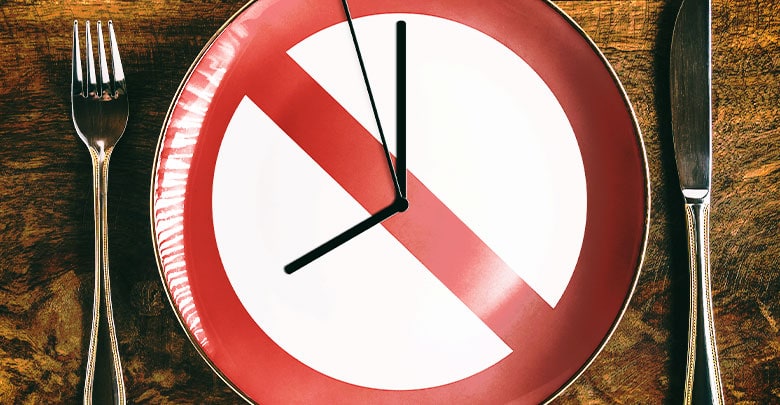Why Skipping Breakfast Spikes Your Blood Sugar
It’s tempting to skip breakfast but here is why the impact on your blood sugar is significant and should not be surprising

Ever skip breakfast thinking your blood sugar will just sit around the number you woke up at…only to find you’re well above 250 mg/dL by lunchtime?
Skipping breakfast can easily spike your blood sugar, and there’s a good explanation for it.
First, let’s take a second to talk about skipping breakfast for the sake of intermittent fasting because whether or not that’s why you skipped breakfast, it’s basically the same result on your diabetes management.
Intermittent fasting in a nutshell
Intermittent fasting is trendy these days. In a nutshell, the “daily” schedule of intermittent fasting calls for skipping breakfast, and pushing lunch back to 1 p.m. And yes, even if you have type 1 or type 2 diabetes, you can fast, but there are a few things you should keep in mind.
The typical intermittent fasting schedule calls for skipping breakfast and not eating your first meal of the day until about 1 p.m. Then eating your normal day’s worth of calories between 1 p.m. and bedtime, creating an approximate “fasting window” of 16 hours, and an “eating window” of 8 hours.
Another common fasting schedule is to eat normally 5 to 6 days of the week and then fast for a full 24 hours once or twice per week.
This is why your blood sugar rises when you skip breakfast…
Your body is designed to survive! And one of those survival skills is that little ol’ hormone known as glucagon. This hormone, produced by your pancreas, signals to your liver to release glycogen.
Glycogen is glucose that has been stored in your liver (and your muscles) for those times of day when you aren’t eating — because your brain relies on a second-by-second delivery of glucose in order to function.
When you skip breakfast, your pancreas inevitably produces glucagon to tell your liver to release glycogen and it’s then converted into glucose.
In a non-diabetic, this would be accompanied by insulin from your pancreas, too.
In those of us with type 1 diabetes, we have to take that insulin manually. This means that even if you wake up at 90 mg/dL, you will likely need a small dose of insulin (maybe even just one unit) within the first couple of hours being awake. And you’ll likely need another unit around 10 a.m., too.
Personally, I take 1 unit of insulin as soon as I wake up to counter dawn phenomenon hormones.
If I’m following an intermittent fasting schedule, I then need another unit of insulin around 9 a.m.
If I truly plan to fast until 1 p.m., I’ll likely need another unit of insulin around 11 a.m.
- Learn more about intermittent fasting with type 1 diabetes.
What’s the point of fasting?
There are several health benefits to intermittent fasting that research continues to support.
- Burn more fat for fuel: When you aren’t eating, and it’s been well beyond 8 hours since your last meal, your body is inevitably going to burn more fat for fuel. By clumping your calorie intake into a smaller window of time, it creates more opportunity during the other 16 hours for your body to burn fat for fuel without the interruption of food. Of course, remember, that eventually eating when the schedule calls for also helps your body burn fat because you need to fuel your metabolism. Going too long without food too many days in a row (like trying to fit several 24-hour fasts into one week) will backfire. Your body needs calories. Don’t push the time constraints here. The maximum should be 16:8 for 5 to 7 days a week, or two 24-hour fasts no more than twice per week.
- Increase insulin sensitivity / decrease insulin resistance: Even though you’re technically eating the same amount of calories, that 16-hour window of fasting can give your body a boost in your insulin sensitivity. This may be the result of losing weight or it may just be the result of not eating for 2/3s of the day.
However, this insulin sensitivity detail can get tricky, because if you have type 1 diabetes, you will most likely see your blood sugars rise during your morning fasting window. This isn’t a bad thing necessarily, but it is something you’ll have to manage and prevent.
Is intermittent fasting the end-all and be-all of weight-loss? No. It’s basically just one approach to losing weight that can work really well for some people and not well for others. Like any other “diets.”
It is important to remember that just because you didn’t eat for 16 hours or 24 hours doesn’t mean you should eat whatever you want during your eating window. Weight-loss success will still come down to eating a mostly healthy diet of mostly real food and lots of vegetables!